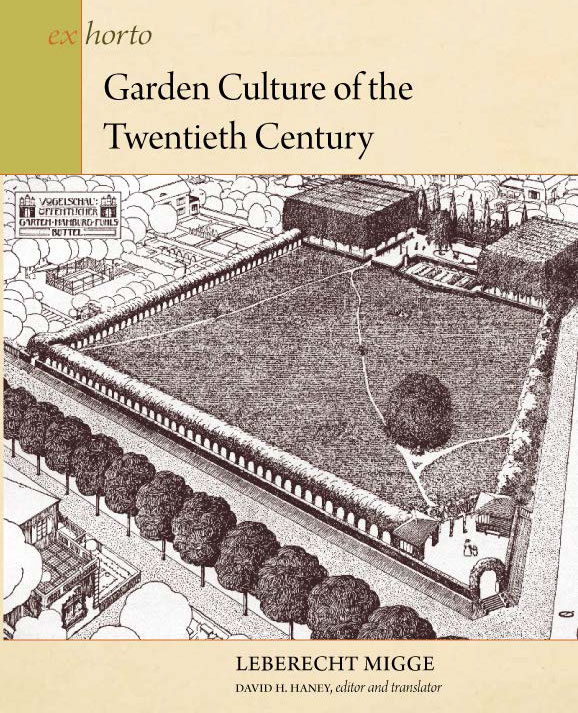Dumbarton Oaks is launching a series of translations of classic and rare texts on garden history and on the philosophy, art, and techniques of landscape architecture. The volumes will cover a broad geographical and temporal range, from ancient Chinese poetry to twentieth-century gardening treatises, and will eventually constitute a library of historical sources that have defined the core of the field. The first two volumes in this series will appear in the fall of 2013. One is a travel report by the German court gardener Hans Jancke, “An Apprenticeship in the Earl of Derby’s Kitchen Gardens and Greenhouses at Knowsley, England” (1874-75), the manuscript of which is owned by Dumbarton Oaks; the other is the translation of “Die Gartenkultur des 20. Jahrhunderts” (“Garden Culture of the 20th Century”) by the German designer Leberecht Migge, which will appear on the centenary of the book’s original publication in 1913.
As a way of launching this series, Dumbarton Oaks are planning a one day colloquium scheduled for November 1, 2013, on the subject of “Travel and Translation.” Its aim is is to explore the ways that landscape design ideas are transmitted and exchanged, sometimes through literal travel and translation, and sometimes through study, absorption, and interpretation. Given that the first two titles in the translation series are German, the focus of the colloquium will be on Germany and Central Europe, with comparative talks on Italy, England, Ireland, and the United States. Among the confirmed speakers is David Haney from the University of Kent, who translated Garden Culture and will speak on Migge’s response to English and American ideas about metropolitan park design.
David Haney’s translation of Leberecht Migge’s Garden Culture of the Twentieth Century has just been published by Dumbarton Oaks (Harvard Univ. Press). It features a lengthy scholarly introduction by Haney, discussing the importance of the German Werkbund to Migge’s project, as well as influences from abroad, including England.
Leberecht Migge (1881–1935) was one of the most innovative landscape architects of the early twentieth century. With work ranging from large urban parks to housing settlements with allotment gardens, he sought to create functional green spaces that would not only meet the environmental challenges of the industrial metropolis but also improve the social conditions of modern life. Migge’s notion of “garden culture” captured the essence of the progressive reform movements of early twentieth-century Germany and yet was unique in proposing a comprehensive role for open space planning within this vision. The nationalistic rhetoric of Garden Culture of the Twentieth Century marks it as a political tract of the late Kaiserreich, and its deep influence within the Siedlung communities of the Weimar era attests to its lasting cultural impact. Perhaps the book’s greatest significance today lies in Migge’s emphasis on the socioeconomic benefits of urban agriculture, which prefigured both this important contemporary trend as well as other recent developments in green technology and infrastructure. Modern readers will find echoes of a progressivism that many have taken to be of only recent origin and will gain a better understanding of the social and economic history of pre–World War I Germany.
For more information on the “Travel and Translation” series please visit the Dumbarton Oaks site.

